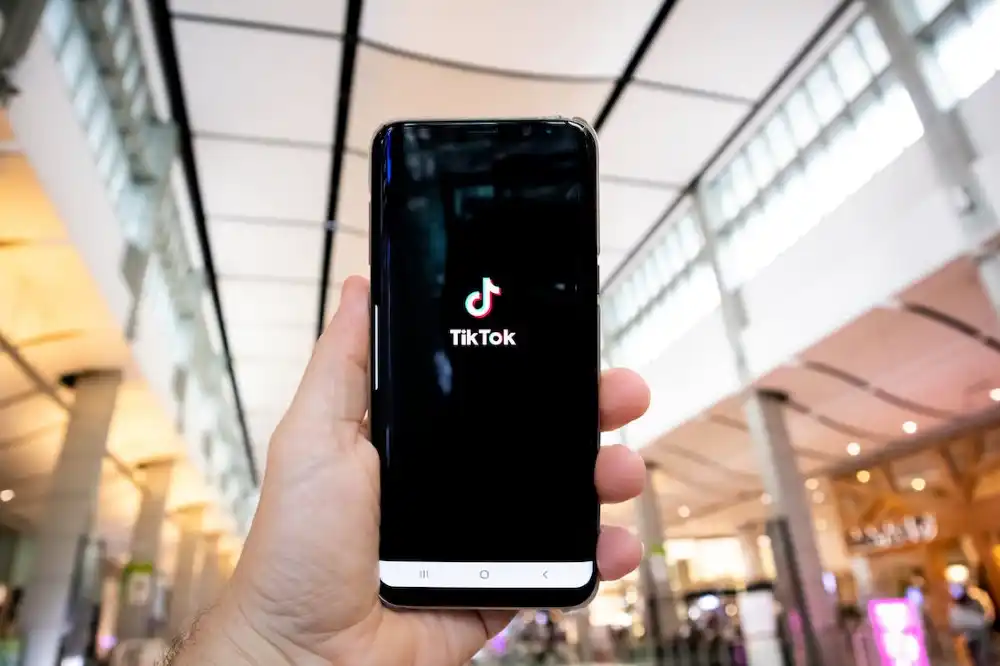In a shocking revelation, a leaked internal memo from a top TikTok lawyer has exposed the company’s efforts to combat what it refers to as “anti-TikTok disinformation” and “anti-TikTok narratives” perpetuated by news organizations.
The confidential document obtained by Forbes highlights TikTok’s concern about the negative media cycle that it claims is damaging its corporate brand and reputation.
“Social Engineering at Scale”
The memo, marked as “Privileged and Confidential,” calls for a dedicated Cognitive Security function within TikTok to address the challenge of disinformation campaigns and attacks. It defines disinformation as what they claim is the intentional promotion of false or misleading information to influence a large group of people.
The document says:
“The current media cycle is at least partially the result of a disinformation campaign (or attack), and as such, should be understood to be an enterprise security challenge that needs to be addressed by a dedicated Cognitive Security function that is charged with identifying, mitigating and disrupting disinformation campaigns and attacks against TikTok,”
In the memo, the lawyer urges the company to establish a team focused on countering (allegedly) false narratives, influencing operations, and attempting to manipulate public beliefs and communities.
This team would engage in what the memo describes as “social engineering at scale,” coordinating external statements, policy positions, and media/regulatory responses to combat disinformation.
To effectively combat false narratives, the lawyer suggests creating a “fact-checking website” to disprove commonly spread false statements and provide information about TikTok’s data collection practices.
The also memo recommends hiring outside counsel and threat intelligence experts to analyze disinformation campaigns and provide recommended courses of action.
TikTok spokesperson Alex Haurek, in response to the leaked memo, stated that the document was created without implementation and denied that the company’s efforts to clarify facts with media outlets were guided by the memo.
However, the lawyer behind the memo appears to have recently left TikTok together with the company’s chief operating officer, Vanessa Pappas, who announced her departure from the social media company last week.
After nearly 5 years at TikTok I am stepping down as COO. To our amazing community of creators, employees, & people who have made TikTok 'the last sunny spot on the internet', it has been an absolute privilege to serve you all & to be a part of this once in a lifetime journey 🙏
— V Pappas (@v_ness) June 22, 2023
The leaked memo raises questions about whether journalists actually have a role in spreading disinformation about TikTok. TikTok has faced influence campaigns in the past, including efforts by its competitor, Meta, to undermine trust in the app.
These campaigns often involved feeding stories to local and regional news outlets for them to perpetuate. While journalists have sometimes attributed dangerous content and trends to TikTok, these claims are more accurately characterized as misinformation rather than deliberate disinformation.
The memo’s language suggesting journalists’ involvement in pushing false narratives about TikTok is seen as an escalation of the company’s strategy to counter negative perceptions. TikTok faces potential bans in the United States due to concerns over national security and user safety.
The company’s previous PR strategy downplayed its ties to China, which is understandable given that those ties are what put it in danger of an all-out ban in the US. The leaked memo indicates a shift in how TikTok engages with the media and external parties.
Tiktok Disinformation Expert Raises Concerns
Claire Wardle, a disinformation expert and cofounder of First Draft, expressed concern about the memo’s language, calling it “exceptionally dangerous.” She argues that it collapses harmful content damaging the company’s reputation with deliberately false information intended to cause harm.
In May, TikTok vehemently criticized a report published by the Wall Street Journal, labeling it as “wrong” and “misleading.”
/1 Respectfully, this is wrong. We provided @WSJ with the following: TikTok does not identify individuals or infer sensitive information such as sexual orientation or race based on what they watch. It’s misleading to omit where we dispute claims made in the headline and story. https://t.co/ySYK8mG64d
— TikTokComms (@TikTokComms) May 5, 2023
Wardle warns that this approach could discredit negative information about TikTok, much like politicians labeling journalists as “fake news.” She said:
“This is… a form of PR in its own right—of making people think that every time they see a piece of information that is negative about TikTok that it must be disinformation.”
While TikTok has dedicated resources to fight ‘disinformation’ on its platform, the company claims to have become the victim of corporate disinformation campaigns. China has also accused the U.S. of spreading disinformation about TikTok but this isn’t unusual for China’s famous Wolf Warrior diplomacy style. However, TikTok did not provide specific details about the “anti-TikTok disinformation” campaigns or their sources.
The leaked memo proposes the creation of a TikTok team solely focused on countering disinformation. It recommends building relationships with external organizations to correct false narratives.
Furthermore, the document suggests that TikTok position itself as a thought leader in combating disinformation, potentially through campaigns highlighting the economic losses and harm caused by “Corporate Disinformation Attacks” and hosting a summit to share experiences.
Impact on Journalism
Wardle points out that TikTok already partners with fact-checkers, and if the company consulted them about the Forbes article, they would likely confirm it is not disinformation. This discrepancy raises concerns about TikTok’s approach to combating negative narratives and its potential impact on free and independent journalism.
As the leaked memo sparks public scrutiny, it remains to be seen how TikTok will address the allegations and whether any of the recommendations outlined in the document will be implemented. The episode underscores the importance of transparency, media literacy, and fact-checking in an era where disinformation can have far-reaching consequences on public perception and trust.
Related Articles
- 15+ Best Crypto To Buy Now
- EU Wants Companies to Label AI Content Amid Rising Disinformation
- YouTube to Allow False Political Claims, Including ‘Stop the Steal’ Misinformation
What's the Best Crypto to Buy Now?
